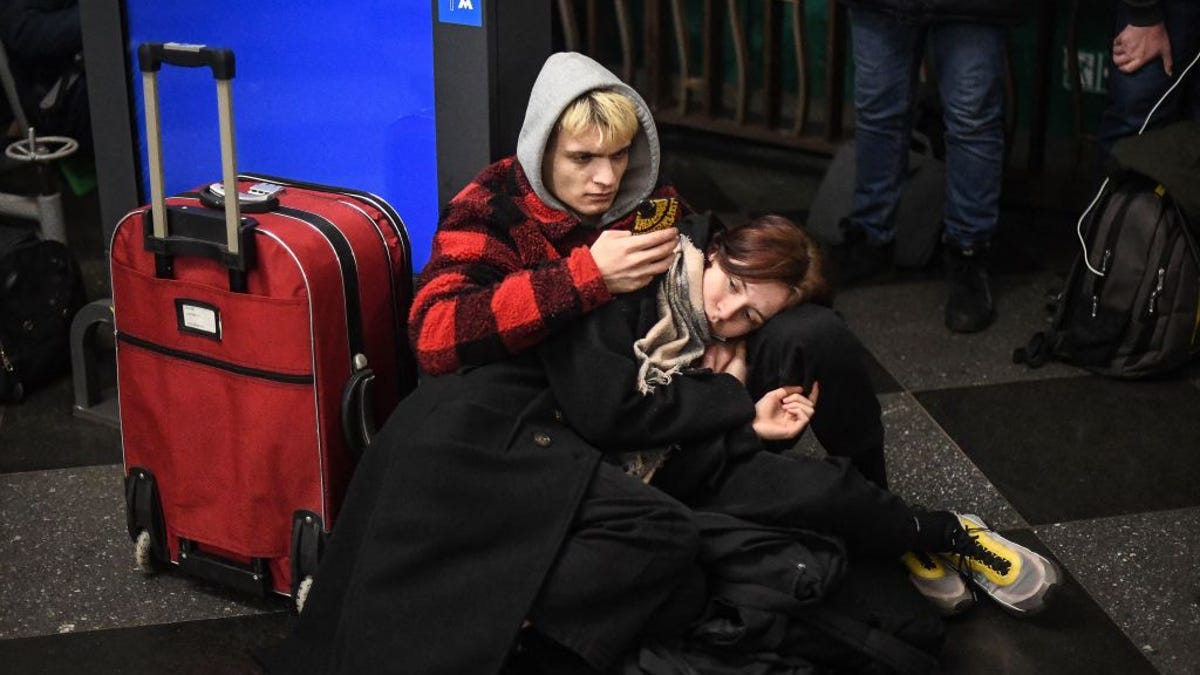Facebook, Twitter, YouTube Crack Down on Ads During Ukraine Crisis
Facebook is prohibiting Russian state media from running ads, YouTube is reportedly following suit and Twitter is pausing ads in select countries.

A man checks a smartphone for information while taking shelter in a metro station in Kyiv, Ukraine, on Thursday.
Facebook parent Meta and social media giant Twitter reacted to Russia's invasion of Ukraine with pronouncements Friday about ads on their respective platforms. Meta said Russian state media would no longer be allowed to run ads, and Twitter said that it's halting ads in Ukraine and Russia for now. On Saturday, Google-owned YouTube reportedly made its own move, prohibiting Russian state-owned media outlet RT and other Russian channels from making money off of ads.
"We are now prohibiting Russian state media from running ads or monetizing on our platform anywhere in the world," Nathaniel Gleicher, Facebook's head of security policy, said in a Friday tweet. "We also continue to apply labels to additional Russian state media. These changes have already begun rolling out and will continue into the weekend."
Meanwhile, the Twitter Safety account tweeted that Twitter is "temporarily pausing advertisements in Ukraine and Russia to ensure critical public safety information is elevated and ads don't detract from it."
Meta's move followed a partial block on access to Facebook in Russia after the country's communications regulator claimed the social network had censored some Russian media.
On Saturday, Twitter tweeted through its support account that "we aware that Twitter is being restricted for some people in Russia and are working to keep our service safe and accessible."
Also Saturday, YouTube reportedly said in a statement that it's "pausing a number of channels' ability to monetize on YouTube, including several Russian channels affiliated with recent sanctions." The channels include Russian state-owned media outlet RT, Reuters reported. The news outlet said videos from the channels in question will appear less often in recommendations and that because of "a government request," RT and several other channels won't be available in Ukraine. Neither YouTube nor its parent company, Google, immediately responded to a request for comment.
Gleicher tweeted on Thursday that Meta had set up "a Special Operations Center to respond in real time" to the Ukraine crisis and had also launched a one-click tool that's designed to let people in Ukraine quickly lock down their accounts. "When their profile is locked, people who aren't their friends can't download or share their profile photo or see posts on their timeline," Gleicher said.
Earlier this week, Twitter Safety also tweeted out tips on how users can protect their accounts.
On Saturday, Meta published a blog post that follows up on Gleicher's Thursday tweet and gives more details on the company's efforts around the invasion. In addition to discussing the Specials Ops effort and the lock-down tool, the blog post said Meta is expanding its third-party fact-checking capacity in Russian and Ukrainian and will provide increased transparency regarding state-controlled media outlets.

